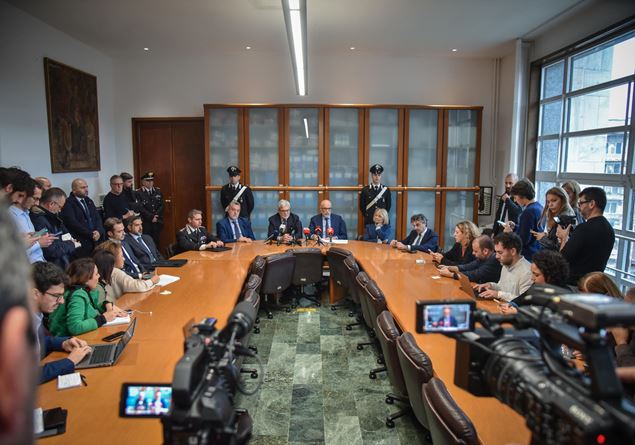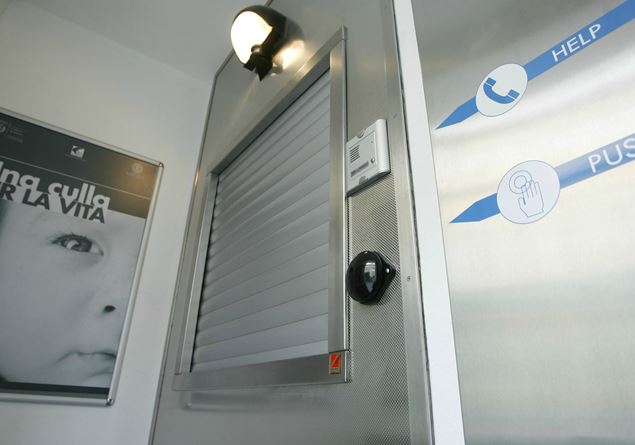
The District Anti-Mafia Directorate of Milan has brought to light a vast espionage network involving former members of the police force, IT technicians and hackers, suspected of having sold high-value personal information illicitly extracted from strategic Italian databases. The investigation, conducted by the deputy prosecutor Alessandra Dolci and the prosecutor Francesco De Tommasi, focused on six people, arrested for criminal association aimed at unauthorized access to protected computer systems. The investigations also led to searches and seizures, in an investigation that is shaking the country’s business and political world.
An organized spy network
From the wiretaps and the investigation documents, it emerges that the organization was well established and enjoyed contacts with high-level circles, including organized crime and secret services, including foreign ones. The people involved illegally accessed databases such as the Investigation System (Sdi), Serpico, and the Bank of Italy’s currency information systems. The information collected was then resold to private clients, including well-known entrepreneurs and law firms. At the center of the network, prominent figures such as Carmine Gallo, former policeman and now CEO of the investigative company Equalize, who operated on behalf of various clients, including the president of the Fiera di Milano Foundation, Enrico Pazzali.
The investigation: from its origins to the sensational implications
The investigation began on October 25th, when the Varese Carabinieri, in coordination with the Milan DDA, carried out the first precautionary measures. The dossier system, according to judge Fabrizio Filice, allowed the group to “hold the country in its hands”, using the data collected both to obtain illicit profits and for extortion and pressure in the political and business world. During wiretaps, members of the group boasted of their ability to access classified information and be able to use it to influence high-level decisions.
The arrests and the names involved
Among the figures involved there are prominent figures such as Leonardo Maria Del Vecchio, suspected of having requested dossiers on inheritance issues and personal relationships, and Matteo and Fabio Arpe, involved for abusive access to the Banco Bpm branch in Alessandria. The president of the Senate Ignazio La Russa and his son Geronimo also appear in the list of targeted personalities, on whom reports were produced at the request of private investigators.
The role of politics and the declarations of Piantedosi, Crosetto and Meloni
Interior Minister Matteo Piantedosi has asked for a review of access to the Interior Ministry databases, announcing investigations to clarify any abuses and flaws in the system. Defense Minister Guido Crosetto spoke of a threat to democracy and called for action by Parliament to regulate and investigate such practices, which he considers the “tip of the iceberg” of a widespread problem.
Prime Minister Giorgia Meloni also commented on the case, expressing concern about the alleged use of the dossiers as a tool for blackmail and potential subversion. He then added that he expects the judiciary to investigate thoroughly to clarify any subversive acts that would threaten the rule of law.
Further developments: contacts with mafias and secret services
The interceptions also reveal the group’s alleged involvement in operations linked to mafia crime and the secret services, suggesting a connection with high-level structures, including international ones. Among the most disturbing episodes, there is the fraudulent use of an email address registered to the President of the Republic Sergio Mattarella and the construction of dossiers on political and important figures. According to investigators, the organization also exploited advanced hacking techniques to evade protections in the IT systems of law enforcement agencies.
A complex system and a “cluster” structure
The organization operated as a “cluster” structure, in which each member and collaborator had access to sensitive information obtained thanks to internal contacts in public administrations and law enforcement agencies. The agents involved and the IT technicians would have been able to access the protected databases, disguising the information as journalistic reports or analysis documents, fueling a veritable “dossier factory”.
The affair continues to keep Italy in suspense, while the investigation proceeds to search for new implications and verify the implications of this espionage network which has raised concerns about national security and the integrity of the democratic system.









